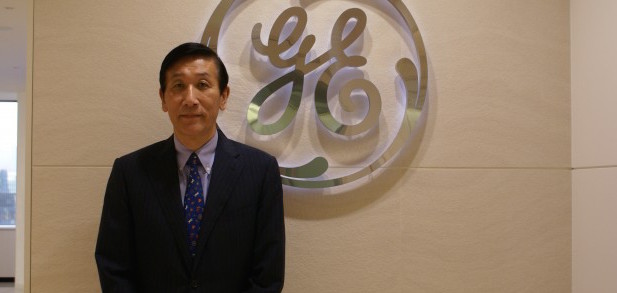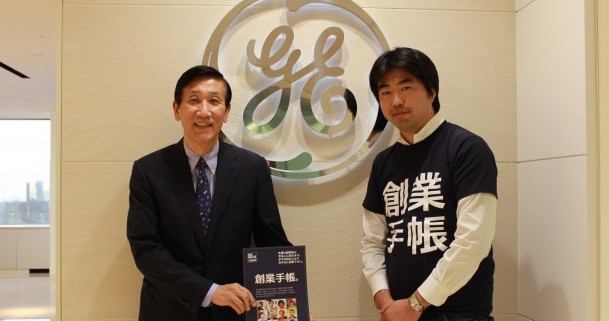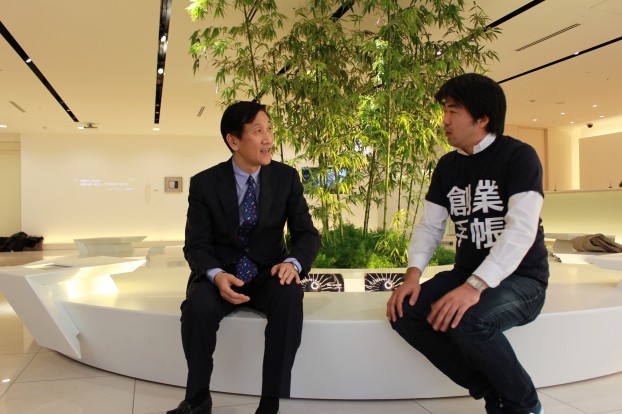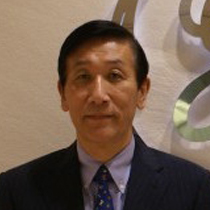
A Pilot Interview with one of the most successful companies in the history of the global corporate world
GE (General Electric) is one of the world’s largest conglomerates. It’s composed of a number of primary business units, with each unit in itself a vast enterprise. Some of these businesses can even be considered as a stand-alone company, ranked in the Fortune 500.
The type of business ranges from medical equipment, financial and a variety of aircraft engines and apparatuses. But it’s the method of remarkable work ethic that exists in its core that supports it. One example would be taking unique style implementation of proper human resource handling and evaluation for all staff who has leadership potentials and training them more. This is a place that many enterprises should follow. So we piloted an interview with Mr. Seiji Yasubuchi who is the managing director of Japan GE and also a banking sector CEO for GE Capital about how small business starters can apply GE’s method in order to flourish.

Seiji Yasubuchi graduated at Waseda University with a Political Science and Economics Degree. After graduating, he joined Mitsubishi Corporation. In 1990, he earned his MBA from Harvard Business School. He became the Vice President of Business Development for GE Commercial Finance Asia in 2006, which led to his appointment as CEO for GE Commercial Finance Japan in September 2007. From 2009, he is the President of GE Capital and CEO of GE Japan.
GE CEO talks about LEADERSHIP
I: All over GE, you’re focusing on raising potential leaders in particular. Can you please tell me the important thing a leader must possess?
Y: We are always geared towards what we refer to as “bringing about changes”. I feel the need to always be in search of change. The most important thing for a leader to live by is an ideology of executing changes for the better. It’s how they influence that makes it easy to achieve greater things and be honestly regarded as someone with the highest authority. When I was still an employee, customers are responsible for changing the technology around us. A leader needs to bring out these changes to and before others.
I: Did you have what it takes to bring about these good changes?
Y: I always have to carry my leadership with “integrity”. In other words, enterprise morality and corporate ethics are my basis. It’s also very important to have self-awareness whether people see it or not. In fact, we also incorporate several trainings too in order to constantly hone our performance.
On people-training and handling skills

I: Can people grow through training even those who are considered as “weakest links”?
Y: Anyone can be developed and trained of course. It started with the idea that great leadership is awakened by extensive training and coaching and that they don’t possess it instantly. Moreover, now is the age of “Learning” not “Education” I’m aiming to start a “Learning Environment” which grows on its own. In addition, we are a team, not just a single person so all the employees believe that we need a solid leadership to unite us all together as a group.
I: How can this be applicable in the case of entrepreneurs who are just starting?
Y: If the organization is small, all the more they should share what the company is aiming for with all the members. I think it would be easier to circulate information but don’t take it for granted. No matter how small, if one does not take one step at a time, nothing will be done. Leadership is essential regardless of the number of members.
I: Like you’ve mentioned that venturing companies in Japan is very low so it takes a huge amount of effort in the part of entrepreneurs. As one goes to accommodate tons of ideas on a daily basis, he must retain the ones that will foster growth. We deal with a lot of different situations everyday and we must address them according to the needs and concerns of the business. Each one of us has to go with the changes taking place around us.
I: How do you think a person should be training in leadership?
Y: I call it “stretch” but we make sure to set the goal a little bit higher. If the target is achieved then adjust it little by little until you reach perfection.
I: Isn’t it too excessive for them?
Y: We’re doing “Feedback Report” or “Consultation” in the process. They will not decide it on their own. We assess their situation whenever they run into a dead-end. When they are tasked with a project either big or small, I’m also assessing myself (as the boss) if I can do it myself. When a problem occurs inside the company, an expert management team is assigned to resolve the trouble.
I’m calling this “good mess”. When we see that there’s a problem, an expert will dutifully address them. They have to consider various things that was not assumed so far. After laying out all the variables, we take an action and settle it. The experience itself will teach the person to improve.
I: “good mess” is a motivating term. Please tell us what improvement method do you use in GE?
Y: There’s a work technique. If there’s an issue, we gather all the parties involved and consider a solution. We have to go about the underlying reason one by one and find the root cause, then we take the measures for action. We immediately tackle those that are not time and money consuming first. They are divided into four categories and organized from critical to manageable. We put it into practice to exercise taking responsibility.
————————————————————————————
Look forward to the second part of this interview where Mr. Yasubuchi talks more profoundly about what makes GE successful. Watch out for the continuation of this article!








